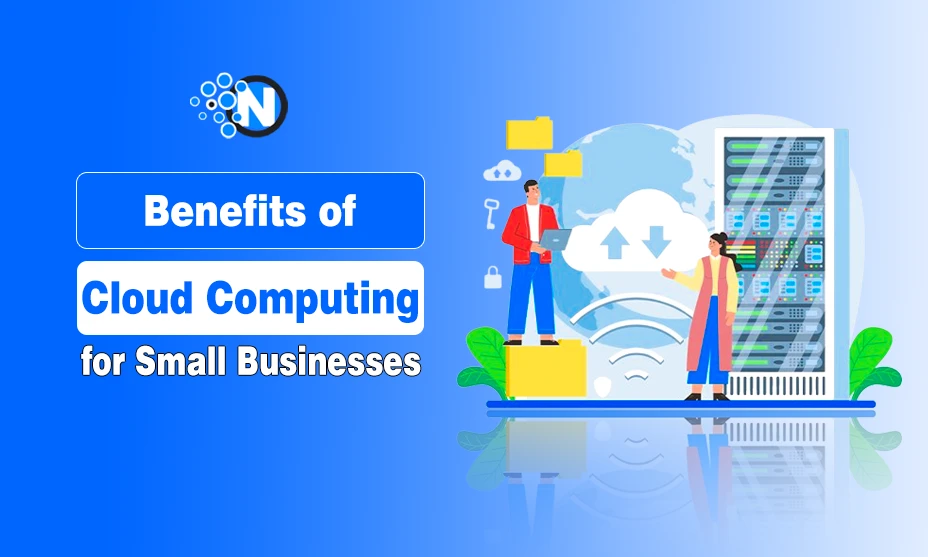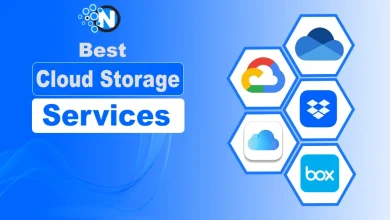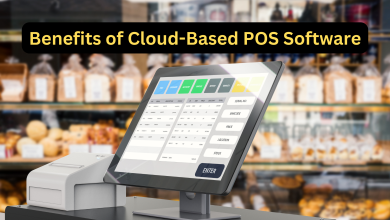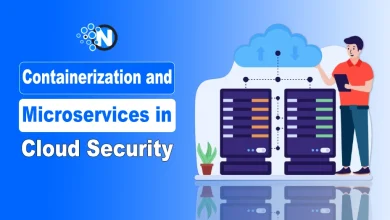Top Benefits of Cloud Computing for Small Businesses

Cloud computing is gaining extreme importance in this highly competitive landscape because of the immense perks associated with it. Small enterprises are especially more biased toward this strategy as it can bring massive scalability and flexibility in marketing strategies.
Further, several other ergonomic outcomes are there, resulting in improved agility, efficiency, and cost-effectiveness. I am going to share some top points that depict the benefits of cloud computing for small businesses.
What is Cloud Computing?
Cloud computing is the delivery of computing services like, servers, storage, databases, networking, software, analytics, and intelligence over the Internet. It is also shortly referred to as “the cloud”. All of their data is stored in a cloud.
Instead of owning their own computing infrastructure or data centers, companies can rent access to anything from apps to storage from any of the cloud service providers.
Do You Know
Cloud computing has its roots in the 1960s with the concept of time-sharing and remote job entry. However, the modern idea of cloud computing, as we know it today, began to take shape in the late 1990s and early 2000s. SalesForce.com was the first company to introduce cloud computing services to its customers.
Benefits of Cloud Computing
According to Business News Daily, some security concerns are associated with using cloud computing. However, you must leverage its potential if you have started a new company and want to take it to an advanced level. The following section will help you learn about the benefits of cloud computing for small businesses.
Cloud computing has its roots in the 1960s with the concept of time-sharing and remote job entry. However, the modern idea of cloud computing, as we know it today, began to take shape in the late 1990s and early 2000s.
1 – Cost Efficiency
The foremost advantage of cloud computing is that it is incredibly cost-efficient. Online storage solutions offer tools and software, significantly reducing the need for high-end storage devices and associated hardware. Hence, you can save a more enormous sum from spending on them.
Moreover, traditional IT infrastructure has to be purchased entirely. On the other hand, you only have to pay for the cloud services you utilize. This is another aspect of this technique for cost efficiency.
2 – Scalability and Flexibility
Scalability and flexibility are other exclusive advantages of integrating cloud computing into your working strategy. Generally, it is complicated to upgrade traditional systems to make them compatible with modern requirements and needs.
On the other hand, cloud computing offers an exceptional scalability feature to accommodate all the on-demand tools and software. Hence, you can quickly bring flexibility to your strategies and adapt to changing needs to overcome basic challenges. That’s why you must shift from traditional systems to cloud computing as soon as possible.
3 – Accessibility and Collaboration
Cloud computing mainly works online. Thus, you can access the data and applications integrated into it anywhere and anytime without needing the same device. This increased accessibility removes load from a single gadget and allows you to work remotely or on the go.
Furthermore, numerous cloud-based collaboration tools are available on the web to store, analyze, and process data. In this way, you can bring efficiency to your everyday tasks by streamlining critical procedures.
4 – Data Security and Backup
Security concerns are always the dominating part when starting a business online. Over the years, the evolution of technology has posed severe threats to traditional gadgets, making them less work and inefficient.
Small businesses must move toward cloud computing solutions as they can provide high-end encryption. Through automated backups and recovery solutions, they can easily retrieve your data and protect it from critical loss and damage. As a result, you can have a complete peace of mind.
5 – Improved Disaster Recovery
No matter how sturdy the working policies are, there is always the chance of getting damages and harm during the online journey. It is necessary to implement the right tactics to recover from them. However, traditional methods to perform this operation are getting more expensive and complex due to global inflation.
You have to pay more to purchase standard tech gadgets and devices. Conversely, cloud computing is very cost-effective, with much more flexibility and scalability. As a result, you can save a considerable sum and streamline the disaster recovery procedure more effectively.
6 – Enhanced Collaboration with SaaS
Software as a Service, most commonly known as SaaS, is becoming extremely popular in this modern world. It is also an application of cloud computing. Generally, SaaS tools can be accessed and work over the Internet without being downloaded manually to your device.
Cloud computing enhances collaboration and productivity with maximum results through SaaS activities like customer relationship management and data analysis.
7 – Competitive Edge
The agility and efficiency provided by cloud computing are highly impactful in this highly saturated and competitive environment. You can easily access and operate the software and tools seamlessly without paying much for the high-end hardware.
You can utilize the potential of other cloud tools by integrating them directly into your working strategy. All these benefits are enough to help you stay in the competition and dominate your competitors.
8 – Automatic Updates and Maintenance
Continuous updates and maintenance have become an absolute requirement for companies and businesses to accommodate the latest changes without compromising working and performance. Therefore, it is necessary to stay updated with the market.
Any negligence or delayed update can lead to more damage. This problem is common when using general devices. However, the developers update and maintain cloud software and tools automatically, delivering a smooth experience.
9 – Environmental Sustainability
Cloud computing offers incredible environmental sustainability by optimizing resource utilization at low costs and efficiency levels. This results in reduced energy consumption and more negligible carbon impacts.
Ultimately, small businesses can save resources and contribute to a more environmentally friendly and sustainable environment for a streamlined and proper working environment.
10 – Focus on Core Competencies
Through cloud computing, you can outsource several activities, reducing the load from the traditional IT infrastructure of your business model. Hence, you can focus on core competencies more consistently, leading to desirable outcomes that would otherwise be impossible.
Final Verdicts
Cloud computing emerged as one of the most significant tools for small businesses and provides a bunch of benefits for more streamlined functioning. With this technique, you can bring scalability and flexibility to your working approach. Also, you can enjoy enhanced security, which empowers your position in this competitive market.
Cloud computing is beneficial in accommodating the latest techniques and adapting to new changes for more desirable outcomes. However, it is necessary to select the right tools to integrate them into your cloud model to avoid harm and damage.




